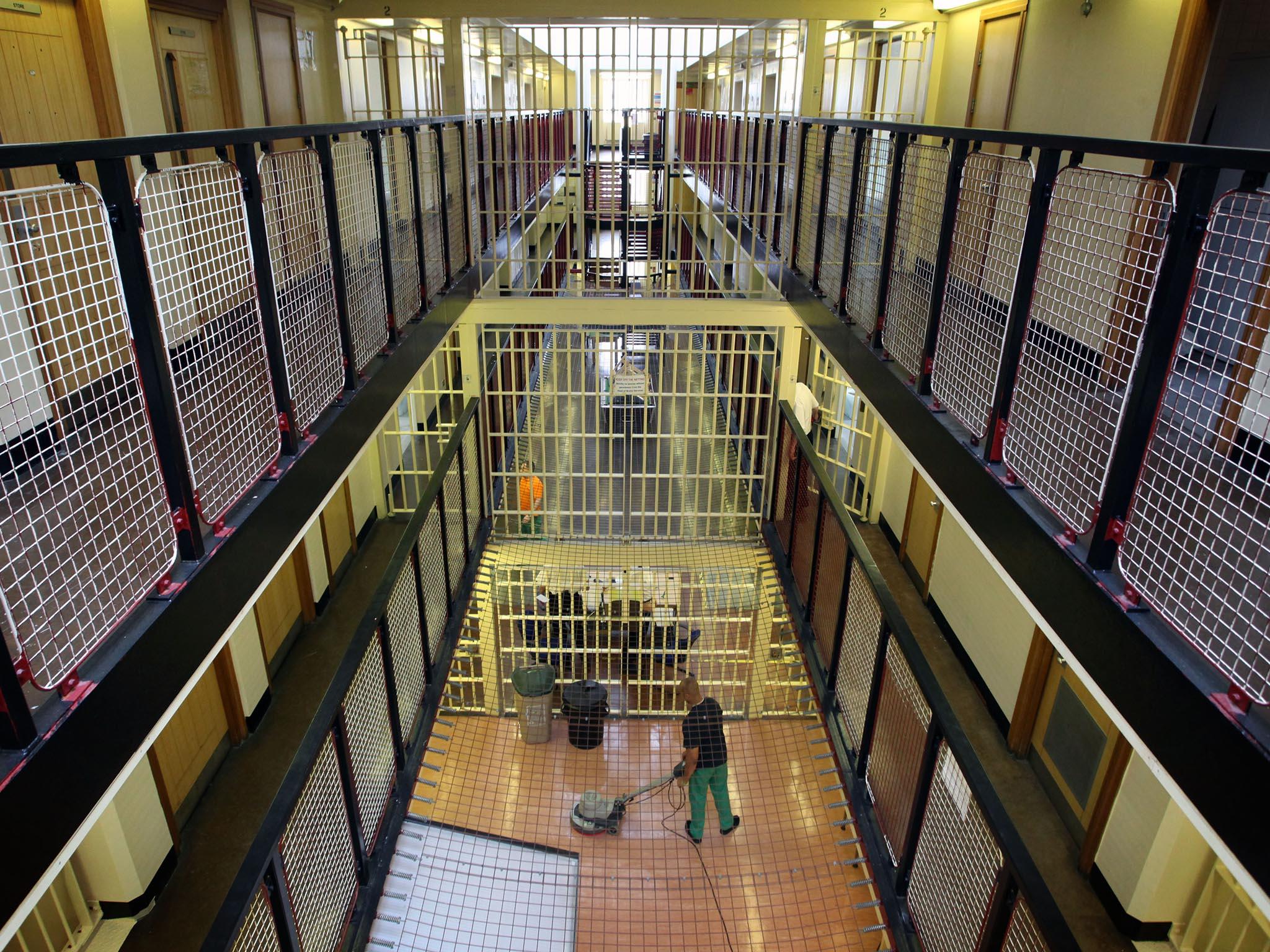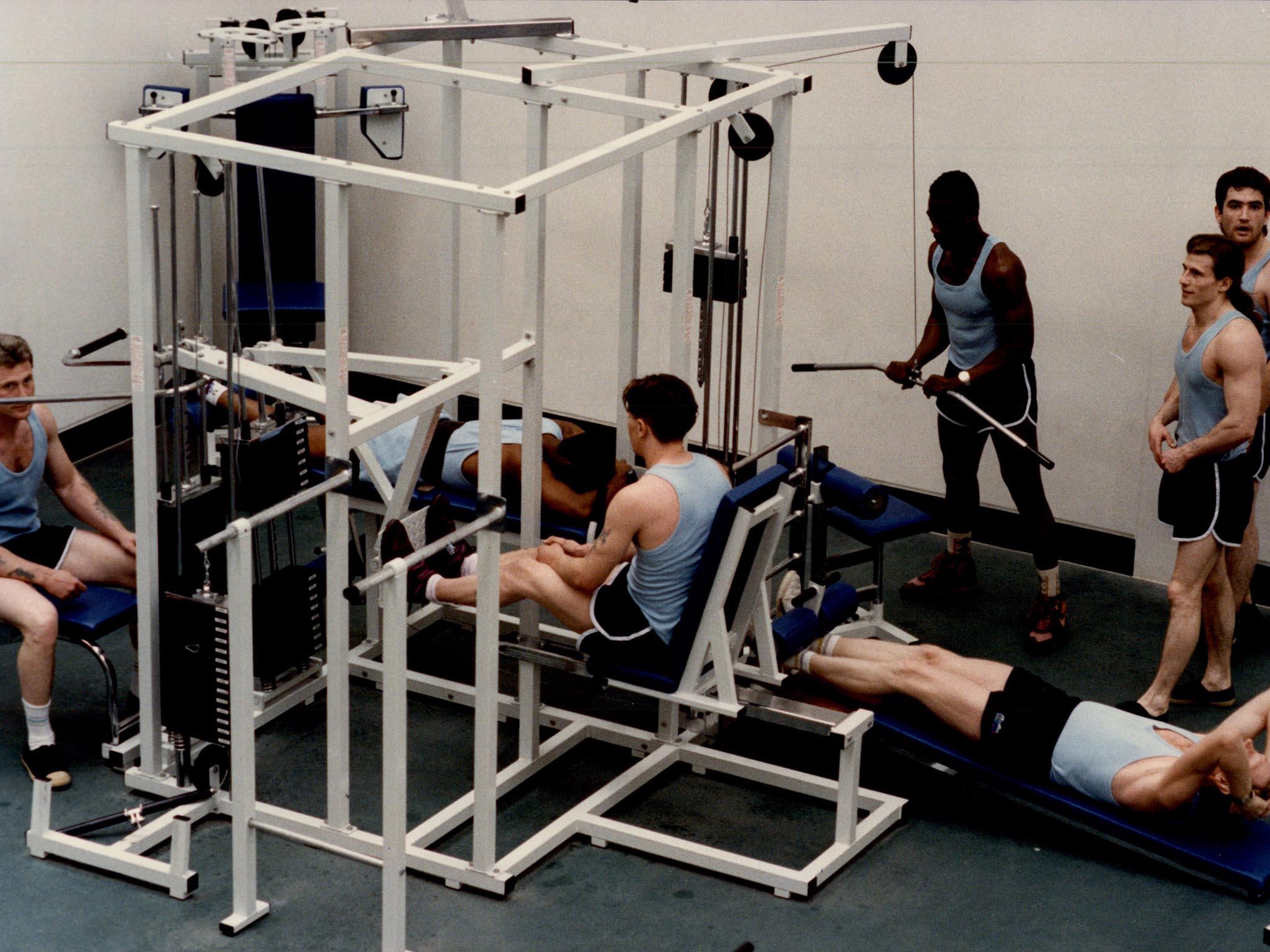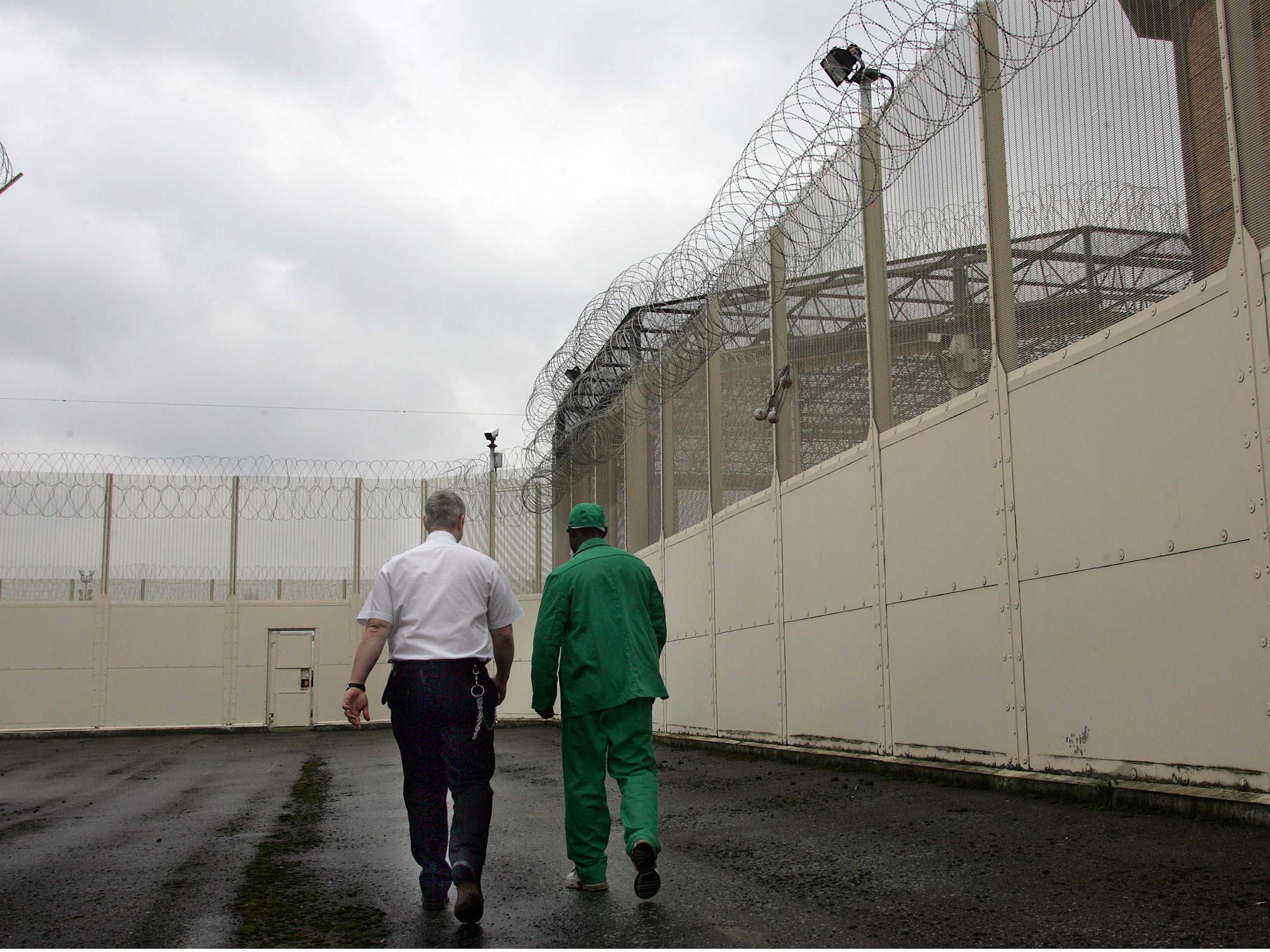The truth about working in a men’s prison... as a female psychologist
Yes, working as a woman in a men’s prison is hard – but so too is the knowledge that the majority of these prisoners are suffering from some kind of undiagnosed mental illness, says Jane Brown*

The prisoner sitting in front of me looks me in the eye. He is a dangerous man, inside for a litany of violent offences. He begins with a slight smile. “The last assessment I had like this I couldn’t deal with the eye contact they were giving me, so I stabbed their eyes out with a pen,” he says. Of course, he may have been exaggerating, but how would I know?
Welcome to my world. He was one of my first assessments as a psychologist in a category C prison and was deemed high risk because he had a history of taking hostages. So should I have made eye contact or not? He had a magnetic personality and was very manipulative. He came from a troubled background, was brought up in foster care and was in prison as soon as he was of age.
But I got him laughing and he calmed down. He was one of the few prisoners who didn’t ask me out. Maybe he didn’t like my eyes. It was an abrupt introduction to prison life, which is a dizzying world laced with mental health problems, sexual tension, corruption and the ever-present threat of violence. But out of it all, surprisingly, there emerges some compassion. There is hope this might eventually lead to a more enlightened prison regime and – hopefully – fewer prisoners. The 600 prisoners in my jail create an atmosphere of brittle calm, but with an underlying tension – one of fear and menace.
I am from a middle-class background in the north and this was an alien environment for me. At the age of 21, about 5ft 2in and weighing 7.5 stone, what could possibly go wrong? It is a wholly self-contained world where some – staff and prisoners – wield authoritarian control over others. Just about every aspect of a person’s life (including staff) is regulated by laws, locks, keys, searches, walls and fences.
Prisoners have their own language: someone being restrained is “bent up”; being “spun” means your cell is being searched is being “spun”, and making a sexually explicit remark to a prison officer will get you “pink carded”. If that happens, even a meeting with the prisoner’s mother has to be conducted with a screen between them. The current favourite insult to an officer is “go suck your mum”.
The power dynamic is not just between prison officers and the inmates but also among the prisoners themselves. Gangs are endemic. When new prisoners arrive, people start attacking them because they are part of a rival gang. Sometimes fights break out and there’s blood everywhere. It’s a feature of daily life.
Most of the prisoners are black African or Caribbean, but some are white, and tend to be mainly from the Irish Traveller community. My job is to interact with the ones among them who are most deeply troubled – to try to help. Even choosing who to help is a challenge: all of them have issues of some sort, abusive childhoods, early expulsion from school, violence and drugs.

Inmates are given medication and meet psychologists such as myself. They all call me “miss”, as if I were a school teacher, although I am younger than virtually all of them.
We meet one-to-one, usually in a classroom, which is fitted with a panic button that officers are supposed to respond to immediately. Sometimes they do, often they don’t. Apart from that, all we have is a whistle – and if you’re in a classroom, who is going to hear a whistle?
What I was worried about before starting work in the prison was being harassed violently but that has not been the case at all. It is sexual harassment – every day
These sessions with the prisoners are the most rewarding part of my job – meeting people who are so closed down. They have no trust in anyone because they’ve been mistreated their whole lives. Having a session where I can provide an empathetic voice, and they end up smiling and feeling that someone cares about them, is enormously satisfying. They leave feeling, I hope, at least a little more positive.
Of course, there are professional boundaries, but I with some prisoners I think: “We could be friends if we had met in different circumstances”. Definitely.
The sessions are also when I get most of the propositions, dinner invitations, and on one occasion a marriage proposal. They will offer you the earth – although it’s not theirs to give. One of the prisoners told me: “I am always thinking about you, miss, I have naughty dreams about you.”
What I was worried about before starting work in the prison was being harassed violently but that has not been the case at all. It is sexual harassment – every day. If I don’t get asked out for evening dinner and drinks twice then that’s an unusual day. Dinner and drinks? Where? In their cell?
I don’t blame them for trying. They would do it with any new female face but you always have to remember there is another side to them – otherwise why would they be there? They are not going anywhere that evening but back to their cells. Still they always promise that as soon as they are out: “I want to see you. I want to take you out, I’ve got lots of money – let me spend it on you.”
I was on my own with another prisoner and he said: “Are you married, miss?” He’s from an Irish Traveller background and my age. He went on: “You should be married by your age and having lots of kids.”
I replied: “No I’m way too young.”
He said: “Oh, miss, will you marry me? I really want to marry you.”
“I’m not getting married for a long time,” I tell him.
“I’ll wait for you outside miss. I’ll wait for you. Come on, we work really well together.”
But the constant threat of violence is never far away. In the case of my suitor, I saw him with a friend at the medication window one day dealing with a black nurse. The friend was refusing to swallow his tablets in front of the nurse then exploded in a racist torrent of abuse saying, “F*** you, you need to go back to your own country, how dare you tell me what to do [using the N-word].”

The guy who had proposed to me was egging him on and shouting. Then he turned around, saw me and said, “Oh, you look beautiful today” and walked off.
It sometimes seems that every prisoner has a knife scar or bullet wound. Violence is what their lives consist of in the outside world, it is hardly surprising that is what happens inside as well.
And I know I am not exempt from the violent feelings of prisoners. One inmate I know likes me, but I have a really bad feeling about him. He came up to me on the wing and whispered very closely in my ear: “You and I could work out a deal which could benefit both of us.” And I just said: “No, you cannot speak to me like that, it is inappropriate.” I then reported him.
The next time I saw him, he screamed at me: “I’m not happy with you, I am not f***ing happy with you!” I had no idea what that was about – but it did frighten me. He could have got at me but I just walked back into the office and locked the door.
Behind it all is the question of mental health. Some prisoners arrive with a diagnosis, but everyone is assessed, particularly for Attention Deficit Hyperactivity Disorder (ADHD). The numbers of prisoners with it are through the roof – more than 50 per cent, whereas in the outside world that figure is somewhere between 5 to 10 per cent. They show emotional instability, aggressive behaviour, a very low threshold for frustration and explosive temper outbursts. There is probably nowhere more likely to exacerbate those symptoms than a prison.
I really believe that none of these people are beyond help. You can’t witness someone being attacked with a knife or your brother being stabbed, or even being stabbed yourself, and just get over it. Prisoners say that having a gun pulled on them is everyday life, part of the gang culture – how can anyone be expected not to be violent if that is all they know?
One guy, the sweetest lad, was attacked recently because he had some weed. Three prisoners went into his cell with a tuna can and sliced him. The nurses just sewed him up right there instead of sending him to plastic surgery. The result was childlike and crude, clearly a rushed job given to the already overworked nurses. The victim had seen a man murdered – how was he ever going to live a normal life after that?
The atmosphere is not helped by the corruption that exists among prison officers and inmates. A recent crackdown has reduced the amount of drugs and phones getting into the jail. The result: more violence. So is there an answer? Not for everyone in prison, of course, but I believe that many could have avoided this life if they had been helped when they were younger.
A prisoner who is on medication for ADHD told me the other day: “If I had been on this before I wouldn’t even be here.” And therein lies some sort of answer. Instead of randomly excluding children from school where they are groomed by gangs, and set on a road with only one destination – prison – they should be assessed and treated. We would be left with a very different situation, although it wouldn’t stop everyone – nothing can.
Recently, a prisoner due for release came to me to say thanks. He had a home and job lined up, was looking forward to the future and hopefully had turned his life around, just because someone had listened to him and cared about him. I could have hugged him, but that would have been inappropriate. I realised I had achieved something in prison by helping people such as him. And, oh yes, I still have both my eyes.
*Author’s name has been changed
Join our commenting forum
Join thought-provoking conversations, follow other Independent readers and see their replies
Comments